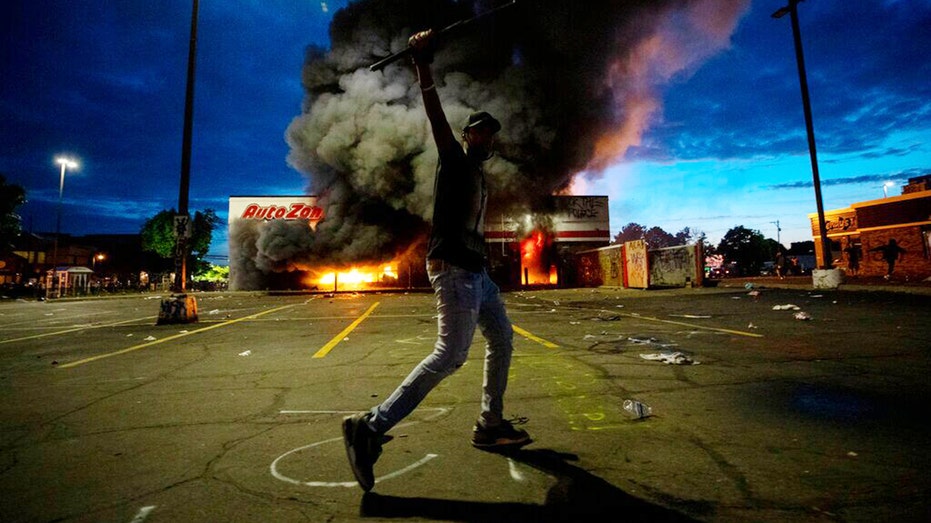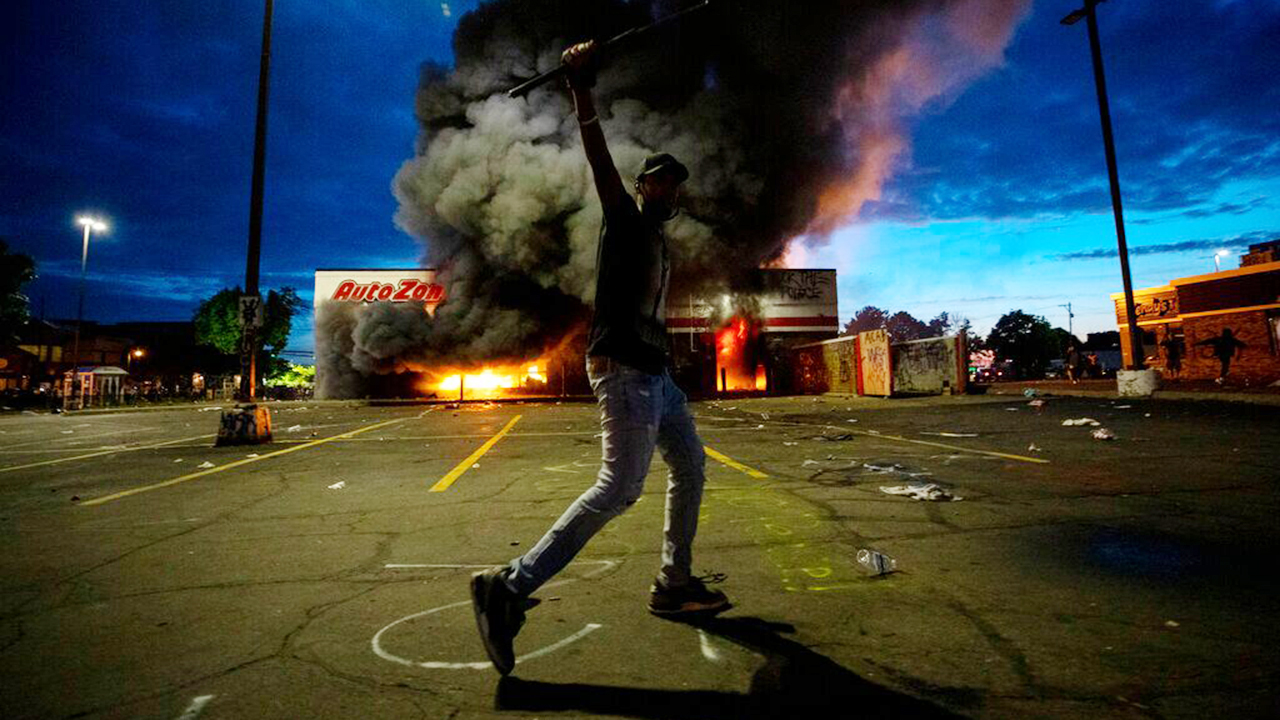Police used Google location data to identify criminal suspects in Minneapolis: report
Investigators turn to 'geofence' warrant in violence amid Minneapolis protests last year
Could your phone make you a suspect in a crime you didn’t commit?
Police investigating vandalism that broke out amid the protests in Minneapolis over George Floyd’s death last year used a search warrant for Google users’ location data in an attempt to identify the so-called “Umbrella Man” who has been blamed for starting violence, TechCrunch reported.
The “geofence” warrant targeted anyone who was near the AutoZone store around the time videos showed a masked man smashing windows, according to the report. It was the first of dozens of buildings that would be looted or burned in the city over several days.
Police said that the Umbrella Man aimed to “incite violence,” according to an affidavit cited by TechCrunch. They linked the suspect to a white supremacist group and a later case of harassment targeting a Muslim woman.

The “geofence” warrant targeted anyone who was near the AutoZone store around the time videos showed the masked Umbrella Man smashing windows. (Carlos Gonzalez/Star Tribune via AP)
TWO GOOGLE ENGINEERS RESIGN OVER FIRING OF AI ETHICS RESEARCHER
While the geofence warrant may have helped police identify the violent instigator, the increasingly common practice is drawing criticism from rights advocates like the American Civil Liberties Union.
Any Google user whose “location history” is turned on is susceptible to being turned over to police in the event that they meet the parameters of a warrant.
A Google spokesperson said the company doesn't comment on specific warrants.
"We vigorously protect the privacy of our users while supporting the important work of law enforcement," the spokesperson said via email.

It was the first of dozens of buildings that would be looted or burned in the city over several days. (Carlos Gonzalez/Star Tribune via AP)
GET FOX BUSINESS ON THE GO BY CLICKING HERE
The ACLU of New York sent a letter to Google CEO Sundar Pichai in December calling on him to share more information about the geofence warrant court orders it receives in order to help civil rights groups oppose the practice.
One of the Google users whose data included in the geofence warrant in Minneapolis, Said Abdullahi, told TechCrunch that he had hired a lawyer to try to stop Google from sharing his data with police.
Abdullahi received an email from Google notifying him that his information was subject to the warrant, according to the report. But he told the website that he was not involved in violence and had only been in the area to shoot video of the protests.
“Police assumed everybody in that area that day is guilty,” he told TechCrunch. “If one person did something criminal [the police] should not go after the whole block of people.”




















